This month’s reading featured Caribbean literary fiction, politics, economics, and the moving tales of a Berlin chiropodist.
April was a difficult month: adapting from Barbados to Serbia, loads of work, and the background worries about war and climate change. Did anyone see the IPCC report warning that emissions need to peak by 2025? Or this blunt appraisal by the usually diplomatic UN Secretary-General:
“Some government and business leaders are saying one thing – but doing another. Simply put, they are lying. And the results will be catastrophic.”
Anyway, books were a sanctuary for me as usual. Here’s a quick summary of what I read this month.
Escape to an Autumn Pavement by Andrew Salkey
This was another find from my explorations of second-hand bookshops in Barbados. I was surprised to find the main character, Jamaican Londoner Johnnie Sobert, grappling with his sexual identity—the book was published in 1960, so I guess it’s one of the earliest explorations of LGBTQ themes in Caribbean literature. I didn’t much enjoy the novel, though—it was a lot of time to spend in the head of a character who was not just hard to like but also hard to understand.
Marzahn, Mon Amour by Katja Oskamp

Now this one I did enjoy. It’s not the most exciting premise: a series of vignettes of ageing Berlin residents, as told by their chiropodist. But it really works. The lives are mostly ordinary, but Katja Oskamp makes them into something beautiful and emotionally powerful. The book reminded me of the work of Svetlana Alexievich, which I wrote about here.
How the One-Armed Sister Sweeps Her House by Cherie Jones
Everyone seems to love this book, but I didn’t. I liked that it was set in a Barbados of grim social realities, far from the “tourist paradise” image, but there were too many times when characters or events didn’t feel believable. For example, it starts with a pregnant woman going into labour and needing help, and as she wanders around the neighbourhood at night looking for help, the random house whose bell she rings just happens to be the one where her boyfriend has just killed someone. There were other strange coincidences to help the plot along too, and some of the characters’ motivations were really unclear to me.
Russia Without Putin by Tony Wood
I joined the Verso Book Club this month—£5 a month for every new ebook they publish sounded like a good deal—and this was the first book I downloaded as part of the membership. It was written in 2020, so before the full invasion of Ukraine, but I found it a great source for understanding the roots of that invasion. The “without Putin” part of the title reflects Tony Wood’s contention that although Western analysis tends to be obsessed with Putin as a personality and to view Russia’s actions purely in terms of Putin’s personal whims, moods or character traits, it’s more helpful to view Russia in terms of the domestic and international systems that were put in place after the fall of the USSR.
Automation and the Future of Work by Aaron Benanav
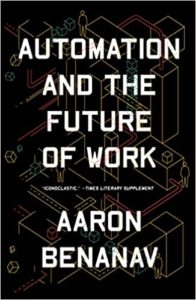
Another one from the Verso subscription. This one takes issue with the narrative that automation is putting people out of work—Benanav says that if that were the case, labour productivity would have risen, but in fact it’s declined. So the rise in unemployment and precarious employment is more due to a decline in demand for labour as a result of long-term industrial overcapacity. So instead of relying on robots to free us from the need for work, Benanav argues for the construction of a post-scarcity economy based on the fair allocation of necessary work and the ability to indulge in other work based on free choice rather than economic necessity.
Small Is Beautiful by E.F. Schumacher
This was another from Barbados bookshops, a battered old 1975 Harper Perennial edition of this classic of “economics as if people mattered”. I’d been meaning to read it for years, but what I didn’t realise is that it was not a sustained economic treatise on the value of doing things on a small scale, but a series of essays on a range of different topics. I found them all insightful and thought-provoking, but was disappointed that the “small is beautiful” theme wasn’t pursued more systematically.
Your Reading Recommendations
As always, please let me know about any good books you’ve read lately in the comments. And if you want to find more book bloggers’ monthly roundups, you can find those over on Feed Your Fiction Addiction.
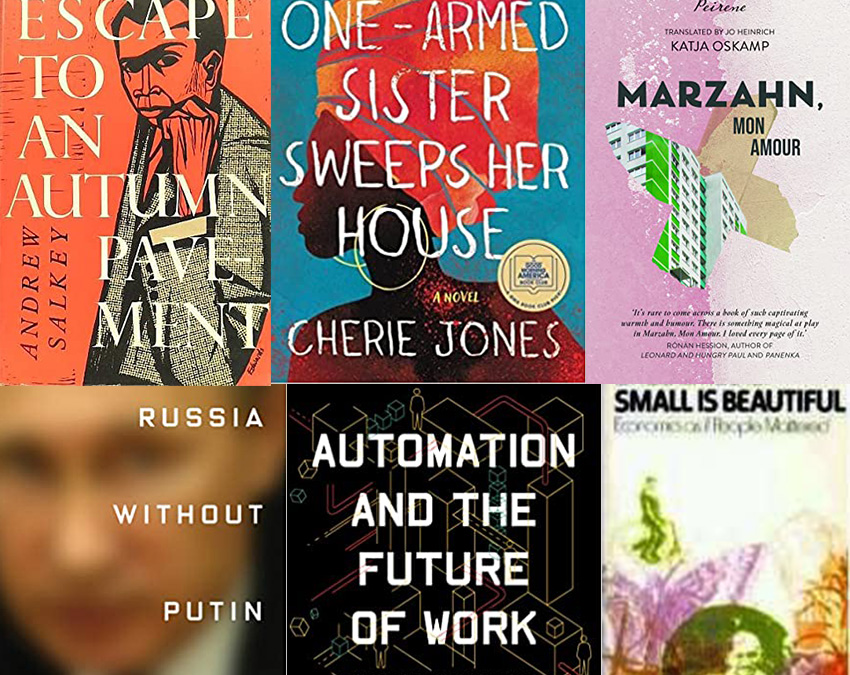
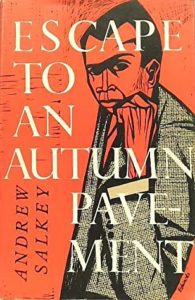
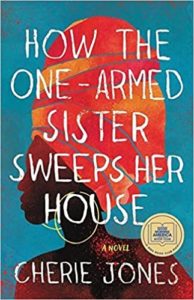
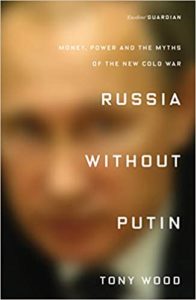




There are 8 comments
Wonderful books you’ve read last month, Andrew! Sorry to know that you didn’t like the Andrew Salkey book. It sounds really fascinating. Thanks for sharing your thoughts ?
Good to hear from you, Vishy! Yes, there were a couple like that this month. Both the Salkey and the Jones books sounded wonderful in terms of their premise and subject matter, and I admired them in certain ways, but I just didn’t enjoy them very much. Sometimes it goes like that! Hope you had a good reading month 🙂
I have found lately that I need to read books to get my mind off real-world things too. While my preference for reading is non-fiction, I really lean heavily on a novel at all times for distraction.
Hi Lisa, thanks for visiting! There’s a quote by Alice Walker that I like: “When I was a child, I read books for entertainment and information; I now think of books as lifeboats.” I’ve been reaching for the lifeboats a lot in the past few years!
Oh, Verso does some really interesting books! I get their newsletter. Very cool you got a subscription! I bet going from Barbados to Serbia was a huge change! And yeah, the IPCC report that got mentioned nowhere in mainstream media because everyone in the US is worried about gas prices and inflation. Also, I was super excited to read in your newsletter about the novel you are working on! I hope it’s going well.
Yeah, I get that Verso newsletter too, and I end up buying quite a few books from it, so I think the subscription will be a good deal.
It was a huge change! What with the weather, the time-zone shift, the culture shift and recovering from a 24-hour journey, I took a while to adjust, and April was a difficult month. Then the background anxiety about climate change, war and a bunch of other things made it worse. But I kept plugging away on the novel, and I did some good reading too. So not a month I’ll look back on fondly, but it worked out OK in the end.
Hope your month was good! I liked a couple of your reading recommendations from your Earth Day post. The Nutmeg’s Curse is one I’ve been planning to read, and The Books of Jacob sounds fascinating!
Sorry you’ve had a difficult adjustment period, but I’m glad books have been your solace. The book about Russia sounds really interesting, especially since it focuses on how Putin is not the only factor driving the invasion of the Ukraine.
Thanks Nicole! Yes, I found it interesting. So much of the analysis talks about Putin and Russia as if they are the same thing, so it was good to hear a different and slightly more nuanced viewpoint. Hope you had a good reading month, and thanks as always for organising the monthly roundup of monthly roundups 🙂